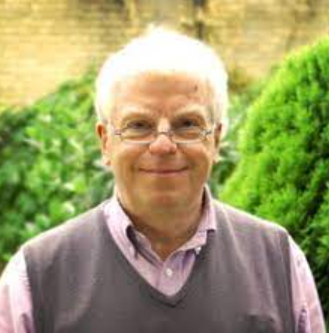Jim Horne Obituary

Jim Horne, Emeritus Professor of Psychophysiology at the School of Sport, Exercise and Health Sciences at Loughborough University, and Honorary Professor at Leicester University, Department of Neuroscience, Psychology and Behaviour, sadly passed away on October 28, 2023.
Jim started his journey into sleep research at Aston University in the 1960s and devoted more than six decades of his life to the field. In 1969, he completed a Master of Science (1969) concerned with the evaluation of stress, for which 72 hours of sleep deprivation was considered a suitable method. Yielding more questions than answers for Jim, he then undertook his PhD (1969-1972) involving 62-hours of sleep deprivation, taking what we would term decades later as a ‘multi-modal’ approach to the study of sleep loss. In 1973, Jim joined Loughborough University.
During this time, he established and led one of the UKs premier sleep centres - the Loughborough Sleep Research Centre - from 1980 until his retirement in 2011. For 15 years (1991-2006), he was the Founding Editor-in-Chief of the Journal of Sleep Research, the primary publication of the European Sleep Research Society, and was instrumental in providing the foundation for the success of the journal today. His substantial achievements in sleep and circadian science were recognised through Fellowships of the Royal Society of Medicine, the British Psychological Society, and the Royal Society of Biology, alongside the award of Doctor of Science (DSc) by the University of London.
Jim was truly a pioneer in sleep and circadian science, recognised by all as one of the ‘giants’ of sleep research. In 1976, he developed the Horne-Östberg morningness-eveningness questionnaire identifying individual differences in circadian variations. Decades later, the use of the questionnaire in sleep and circadian science soared and it remains a valuable tool assessing individual differences in circadian preference. In the 1970s and for decades thereafter, Jim took on the challenge of sleep function, steering the field from one focussed on the ‘body restitution’ theory of (NREM) sleep to one of ‘brain restitution’, highlighting the role of slow wave sleep for the brain and (particularly prefrontal) cognitive capability using a series of elegant and creative study designs. In 1995, his seminal article in the British Medical Journal highlighted the causes and characteristics of fall asleep motor vehicle crashes, preceding two decades of ground- breaking research targeting driver sleepiness. His evidence-based recommendations for managing driver sleepiness transformed road safety in the UK and worldwide, and for this, he was a worthy co-recipient of the 2007 Queen’s Anniversary Prize awarded for excellence, innovation and public benefit for ‘reducing road traffic deaths; vehicle, road and driver safety research’.
Jim’s knowledge of sleep knew no boundaries. He thrived on academic debate and offered a unique perspective to many scientific arguments, as reflected in both his writings and exchanges with colleagues. He authored more than 300 academic publications and numerous popular science writings for the Psychologist, New Scientist, The Telegraph and many others. He authored three books relating to sleep including ‘Why we sleep’ (1988), ‘Sleepfaring’ (2006) and ‘Sleeplessness’ (2016), and authored chapters or wrote forewords in many more. Many sought his expertise. He was an expert witness for the Crown Prosecution Service in a number of high-profile trials concerning driver sleepiness. He was a regular speaker and attendee at many national and international sleep conferences and workshops, and was a tremendous advocate for sleep in the community through television and radio appearances and newspaper articles. But in addition to his unique and exceptional mind, Jim will be remembered for his kindness, generosity, humility, and humour. Many of his colleagues around the world have echoed the same sentiment: Jim was a true gentleman of science. He shared his knowledge willingly, giving so much of his time and wisdom to the advancement of sleep research but more importantly to the people working within it. He was the mentor of all mentors, and many of us will remain forever thankful for his knowledge and inspiration, enduring guidance and support, and above all his friendship.
After his ‘official retirement’ in 2011, Jim continued to write academic papers, popular science articles, and provide advice on all things sleep and road safety. But he also enjoyed his new life spending time with family, enjoying being a husband, father, and grandfather, and being active in his local community. He enjoyed walking and gardening and tending to his chickens and lived by his motto for the brain of ‘use it or lose it’. While Jim and his exceptional mind will be sorely missed by so many, his incredible contribution and legacy will remain. To echo the words of David Harkins, “You can close your eyes and pray that he’ll come back, or you can open your eyes and see all he’s left”.
Obituary written by Clare Anderson
Professor of Sleep and Circadian Science
Centre for Human Brain Health, School of Psychology
University of Birmingham, UK
Former PhD Student/Post Doc of Jim Horne, collaborator and friend.
